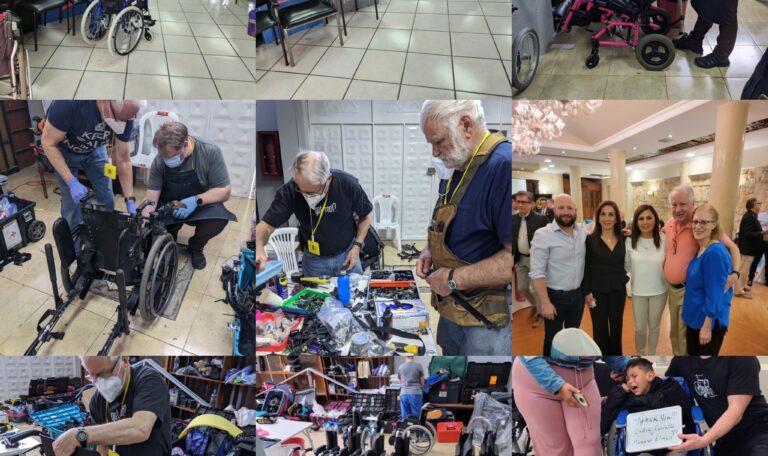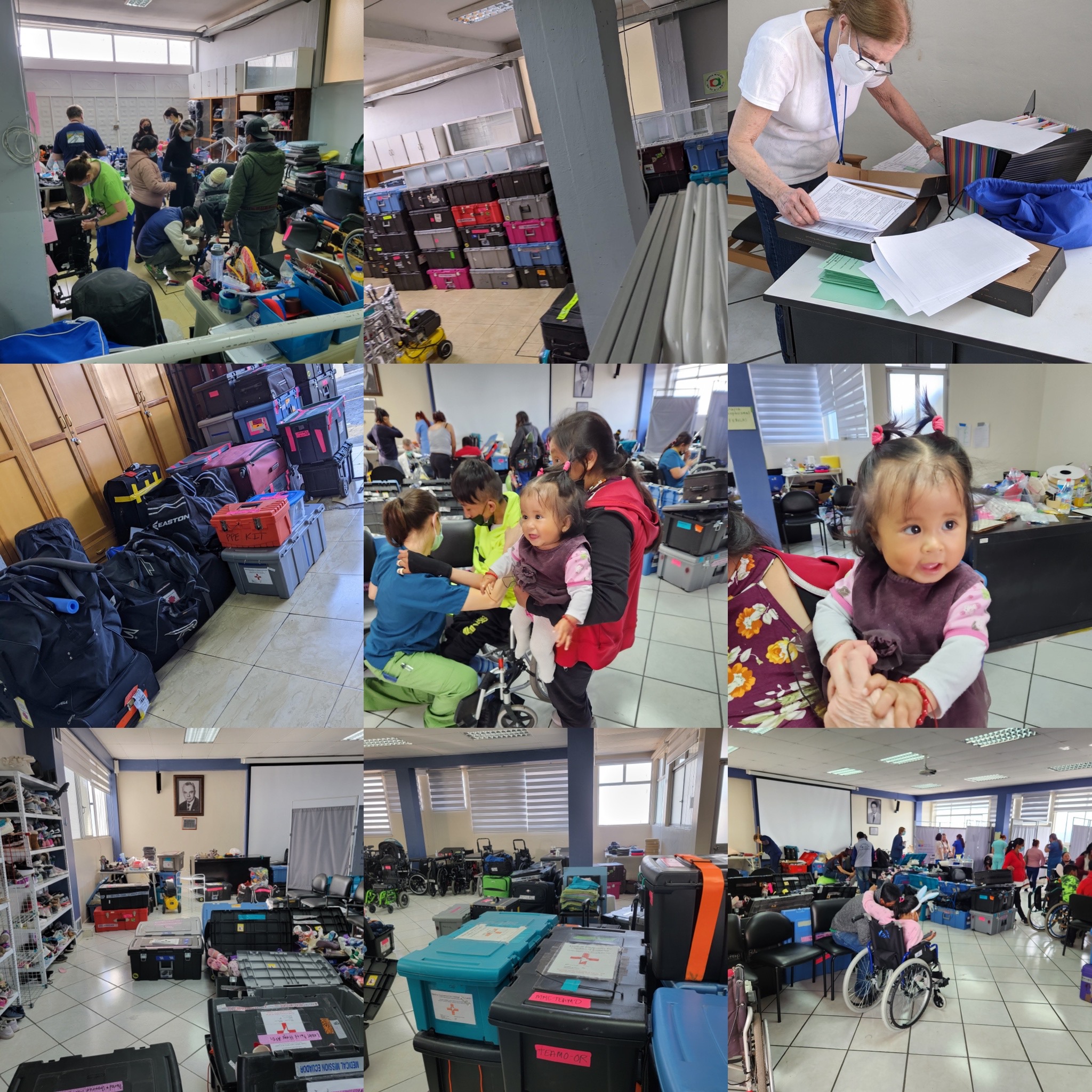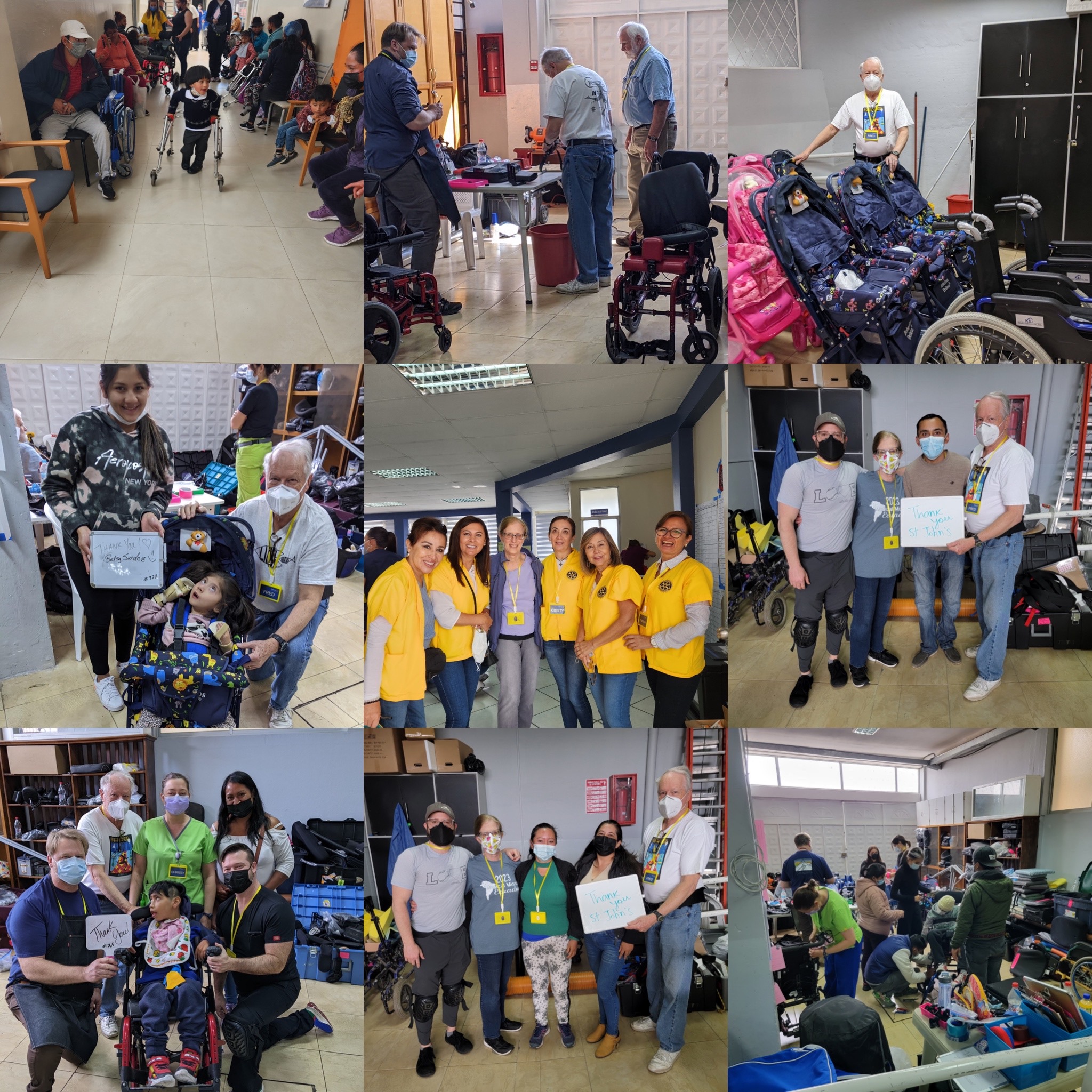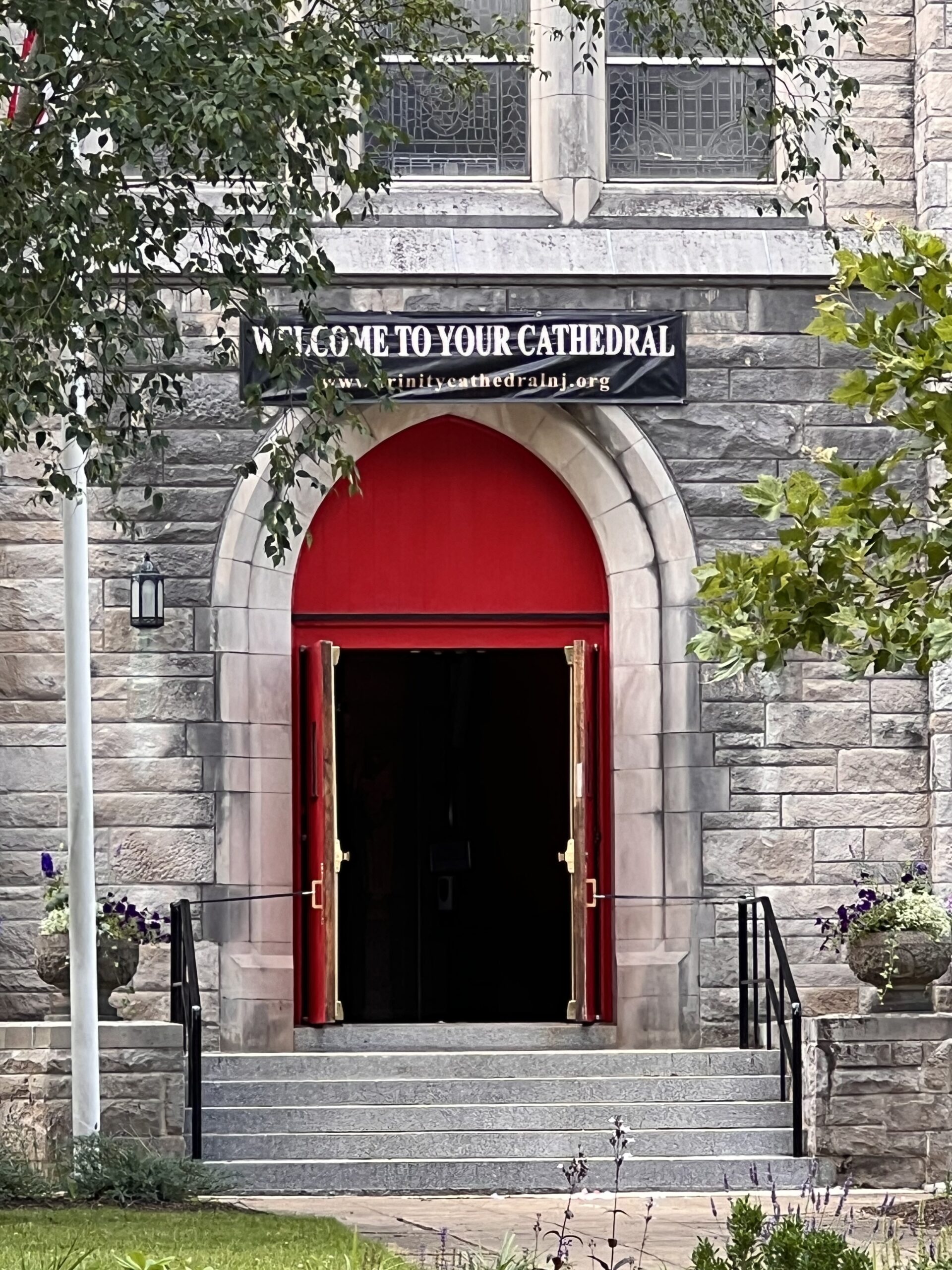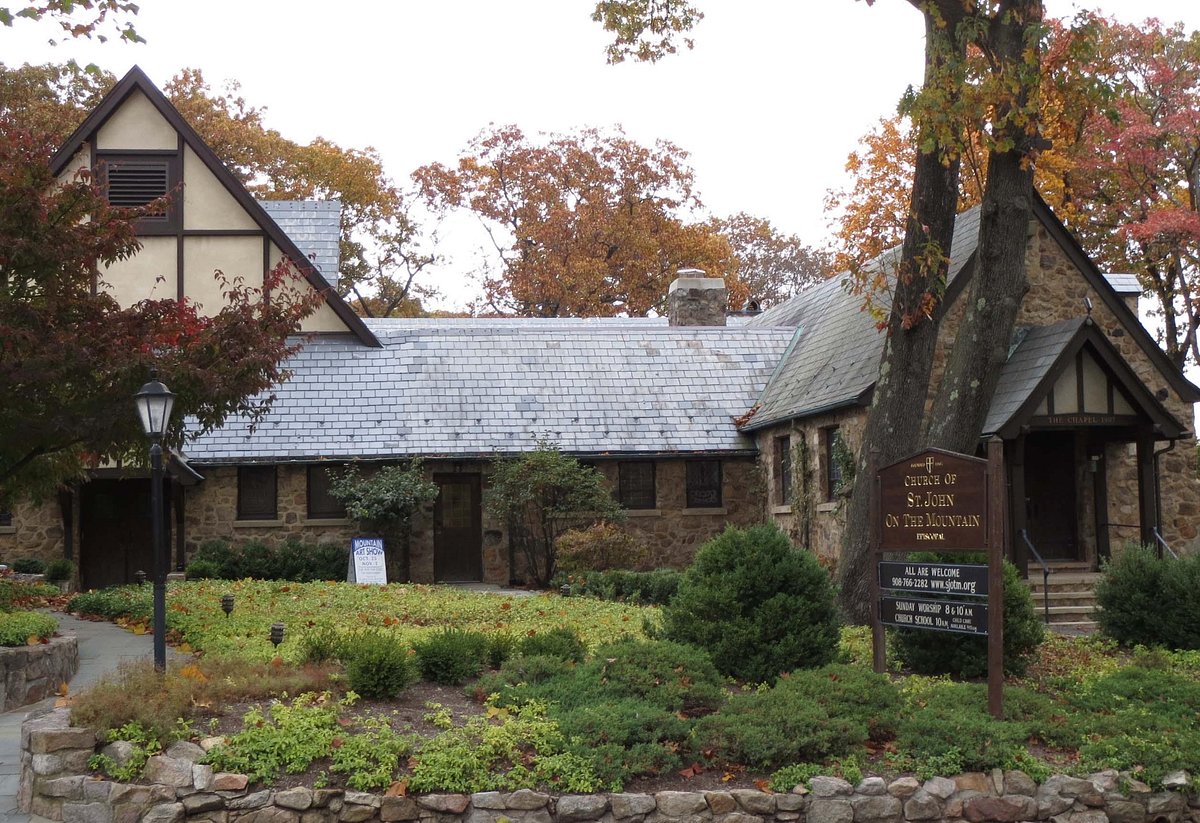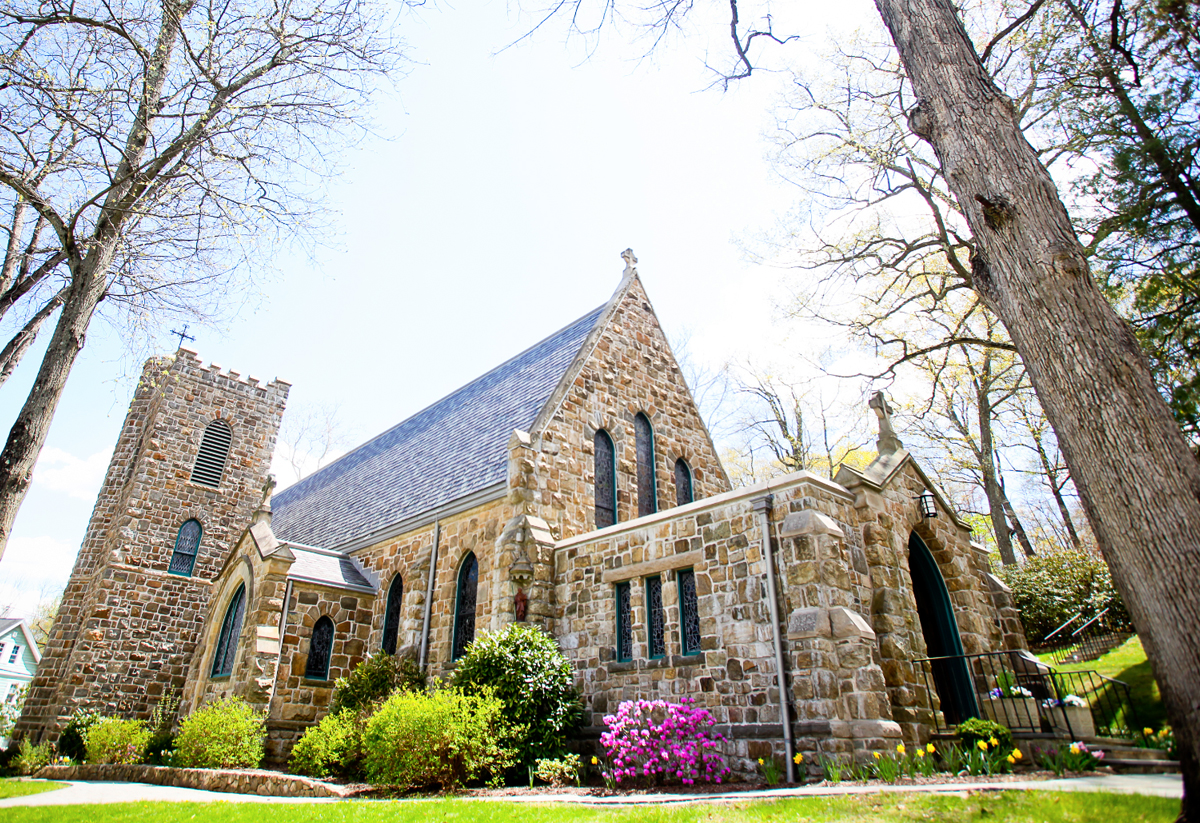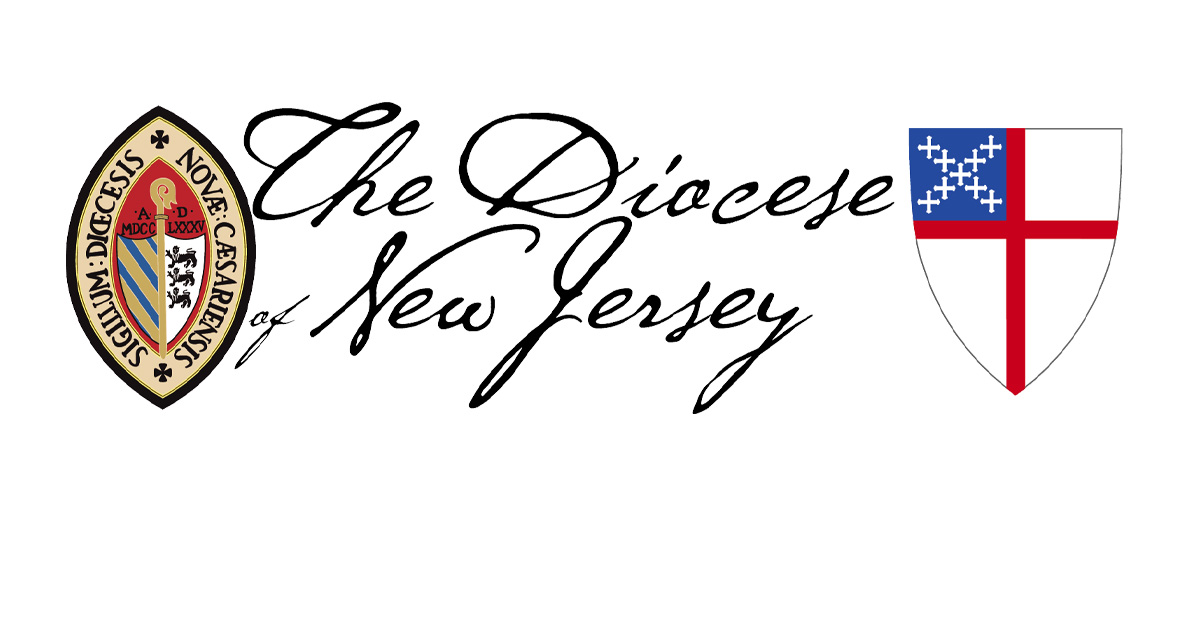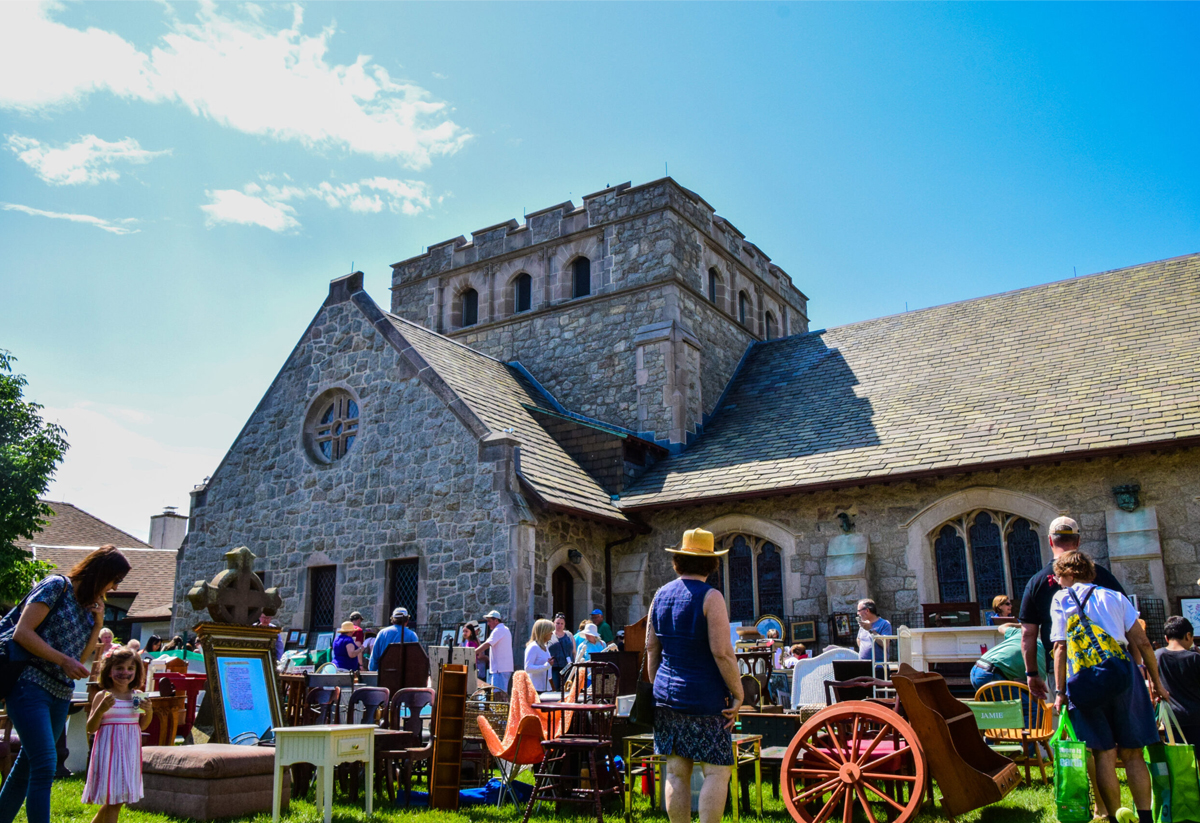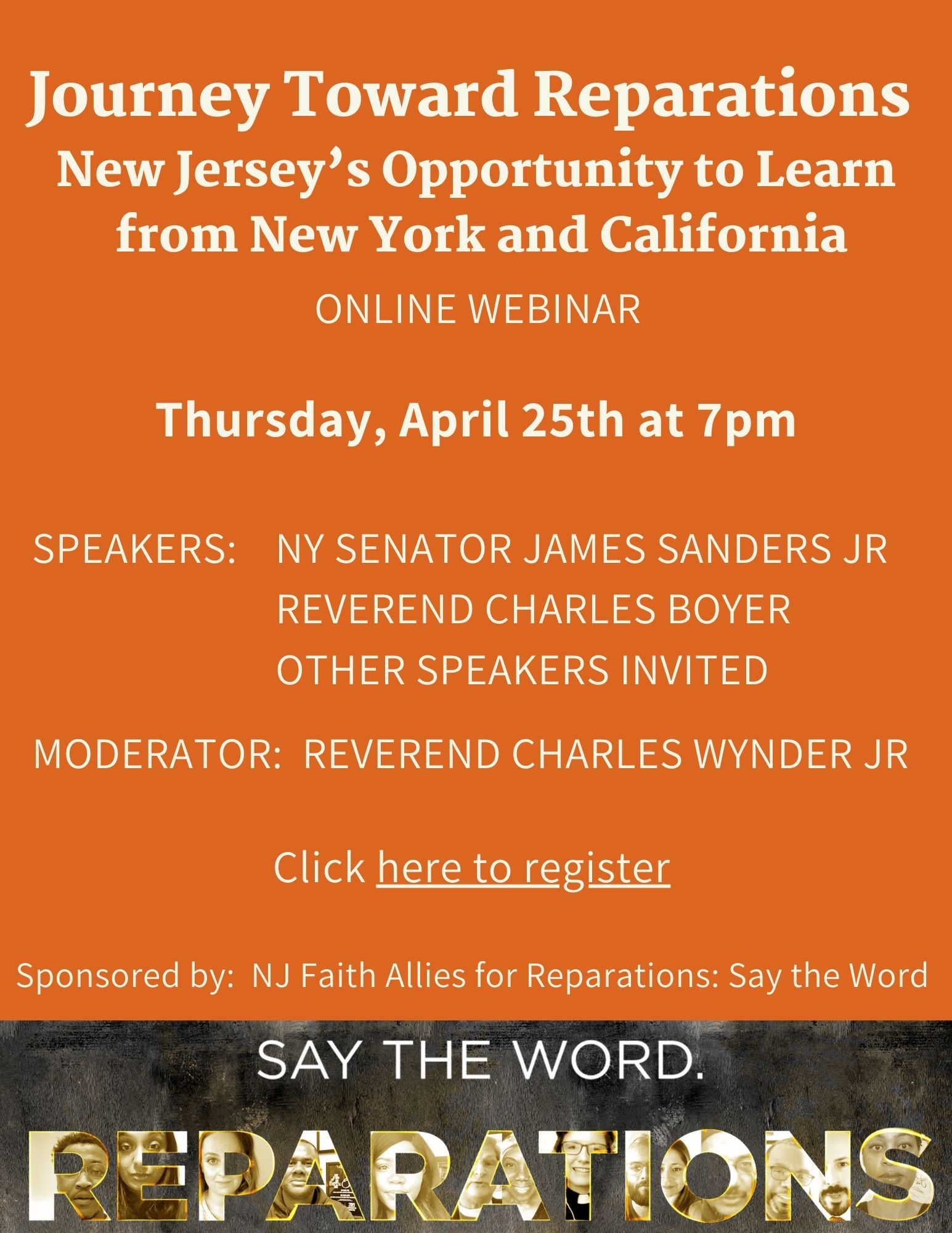The Mission was not held in February 2021 or 2022 due to COVID. The 2020 Mission ended on February 18, 2020 and the first case of COVID in Ecuador was reported February 29, 2020. Ecuador has had approximately 1,056,578 cases and 36,008 deaths, with Guayaquil and Quito the hardest hit. We returned in 2023.
Medical Mission Ecuador 2023 (the 29th year for the mission) – a one week intense mission focused on the children from the Ambato area of Ecuador. The results were: you see over 300 patients, perform 284 Rehabilitation and Orthopedic evaluations, 134 wheelchair and stroller evaluations, perform 120 surgeries, have 743 rehabilitation appointments, fit and modify 136 wheelchairs and strollers, for a total 1297 patient encounters.
Ambato is a city of 329,000 located in the Andes about 2 hours south of Quito, at 8,455 feet elevation. Many of the patients are from the indigenous tribes (descendants of the Incas) and our mission may be their only access to advanced surgery. Many of the children are carried in on the backs of the parents.
Along with the 73 volunteers that fly in, there are about 35 local assistants coordinated through the local Rotary Club – translators, drivers, and seamstress. In 2023, St. John’s paid for the two seamstresses, Alba and Lucia, for the Mission, who made the cushions for the wheelchairs and other orthopedic appliances. Each was paid $200 for 32 hours of work, this is $6.25 per hour. They travel 2 ½ hours from the hills to Ambato and pay their own travel and lodging in Ambato. St. John’s also paid for a local bicycle repairer, Danny, who did many of the simpler repairs. He was paid $100 for 32 hours of work, this is $3.13 per hour. He lives in Ambato and lived at home.
Medical Mission Ecuador was founded 29 years ago by Ambato, Ecuador, natives Drs. Henry and Luis Vasconez, and their sister Beatrice. The Vasconez brothers are both Chief of Plastic Surgery at their respective institutions (University of Kentucky and The University of Alabama, Birmingham). Their sister Beatrice does research for Plastic Surgery at UAB. The three Vasconez siblings looked at their country of birth and saw the obvious – a great number of Ecuadorians that suffered because they had little or no access to medical care. The Ecuadorian health care system was inadequate before the COVID pandemic and was totally overwhelmed by COVID.
Why the emphasis on children? “Because they are the future of Ecuador,” Dr. Henry Vasconez states.
A word about finances – everyone, all 73, pays their own way including food and lodging. All administration is by volunteers. The Rotary Club pays for the buses, trucks and drivers. Everything that is donated goes for supplies for the mission – wheelchairs, tools, orthopedic supplies, and drugs.
Useful Links:
The Mission Website

